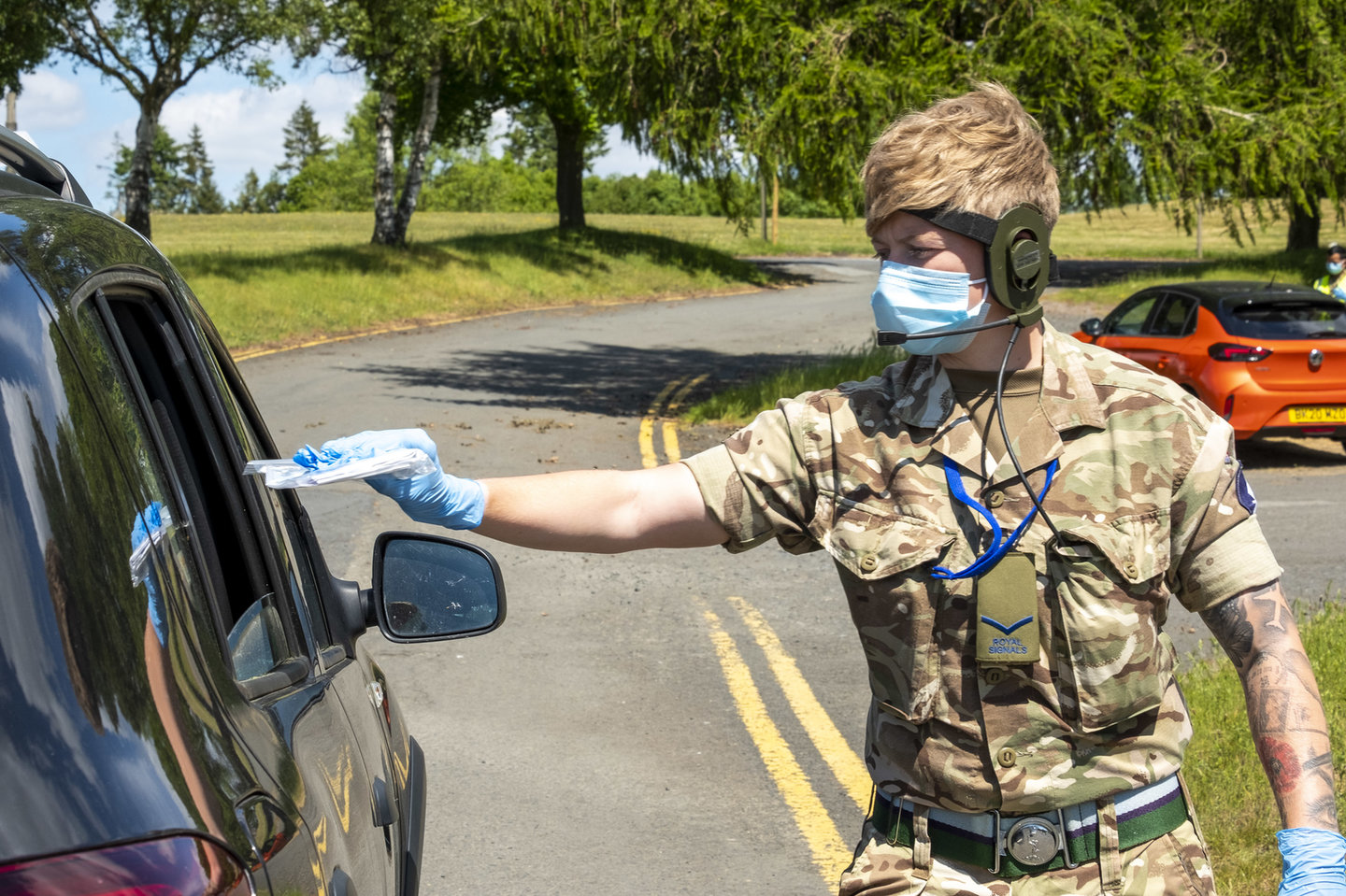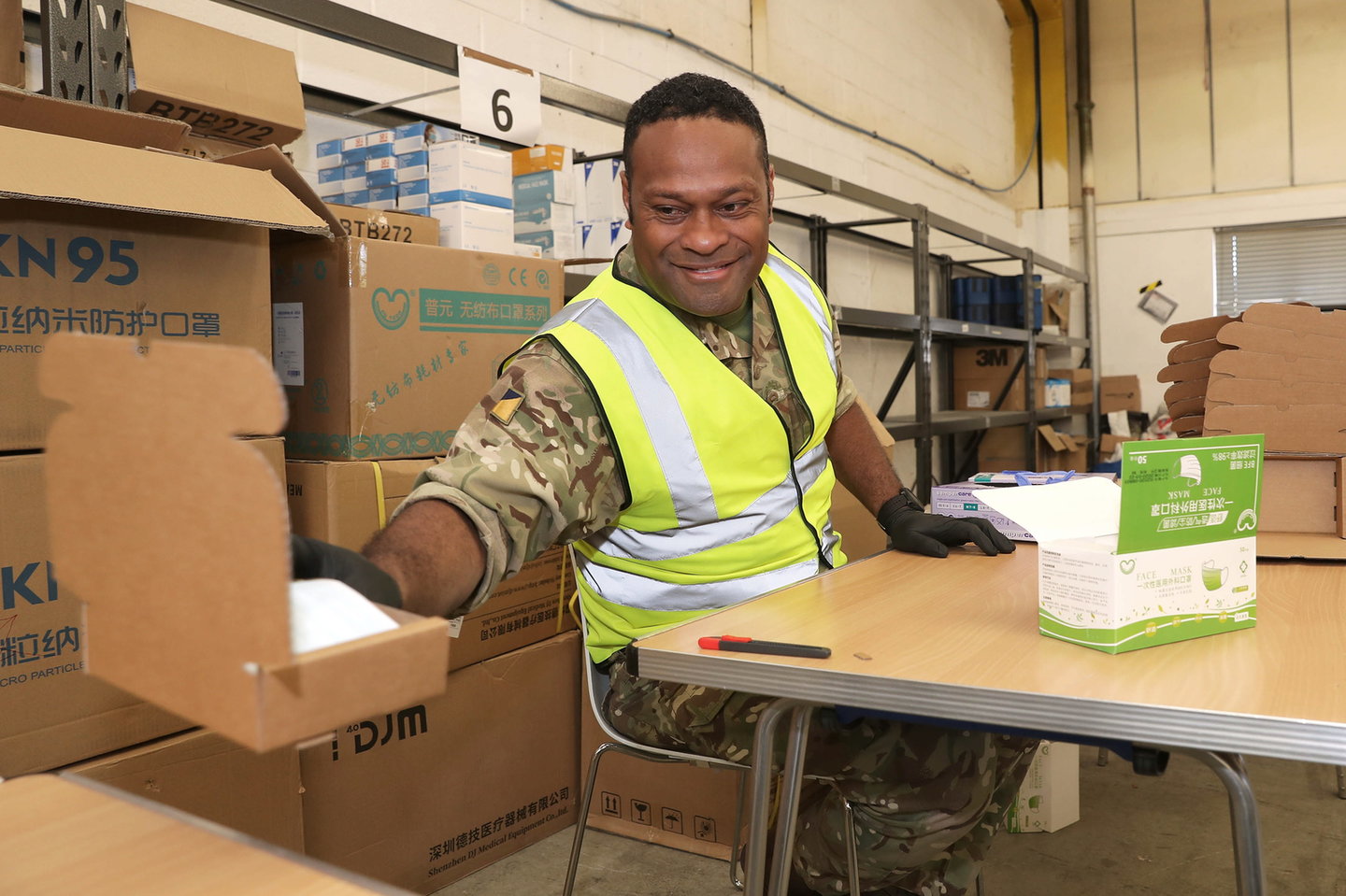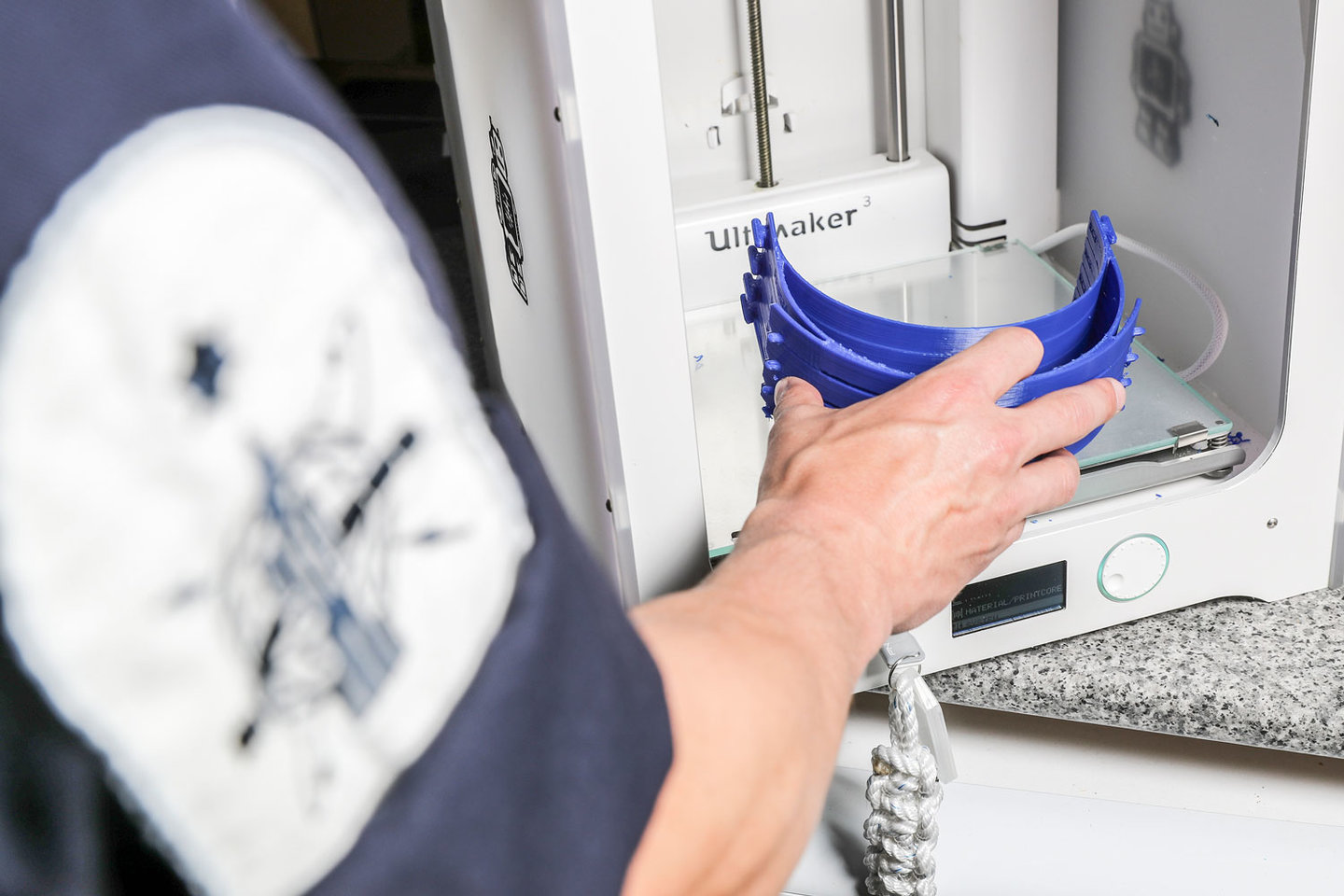Covid-19
Crisis response and budget cuts: how Covid-19 could affect future military funding
The coronavirus pandemic has highlighted the armed forces’ crucial role in crisis response, but the financial aftermath could impact military funding in the coming years. Harry Lye finds out more.
// The RAF delivers medical supplies to support the coronavirus response across the Caribbean. Image: MOD
From building hospitals to transporting cargo, armed forces have played a critical role in the response to the coronavirus crisis by supporting the capacity of civilian healthcare authorities. But despite playing an essential role in the immediate response to the crisis, as well as maintaining international cooperation and resilience at home, armed forces could lose out as a result of the pandemic due to shrinking GDPs and mounting economic damage.
Budget battles to come
As and when the world recovers from the impact of Covid-19, the economic landscape will cause concern for budgets and military spending. Some countries, for example Thailand and South Korea, have already reduced their military budgets to allocate more money to the pandemic response, and the same is likely to happen elsewhere.
With lockdowns rapidly shrinking GDPs and the inevitable decline in tax receipts to countries’ treasuries, large military budgets could be seen as an easy source of cash to help pay for the pandemic response and recovery measures.
“Defence budgets are, overall, sheltered for the current fiscal year as they have already been voted on and allocated in most country. But economic recession will probably impact FY 2021 budgets as defence expenditures are normally calculated as a percentage of GDP,” says GlobalData analyst for aerospace, defence and security Nicolas Jouan.
“If tax revenues go south because of a recession, credit allocations for defence are likely to be impacted. The only countries having officially declared defence budget cuts to face Covid-19 so far are Thailand and South Korea.”
“Despite current budgets being safeguarded, there is no guarantee that the effects won’t be felt when militaries across the world outline their spending plans for 2021.”
A number of countries also tie their defence spending to the 2% of GDP recommended by NATO, which means that if a country’s economy contracts, the defence budget will shrink, too. Despite current budgets being safeguarded, there is no guarantee that the effects won’t be felt when militaries across the world outline their spending plans for 2021.
“The debate is ongoing in the US and the rest of NATO but no decision has been taken yet,” Jouan adds. “Shorter-term options rather concern extensions of credits to defence and stimulus packages in order to face the crisis, like in the US.
“But lobby groups are increasingly asking Congress to stop appropriating extra funds for the Pentagon’s Covid-19 response and instead let the Department of Defense use regular funds from its $750bn budget voted for FY 2020, the largest ever.”
Defence budgets have been growing for a number of years. US Secretary of Defence Mark Esper in May cautioned that even a stagnant US defence budget would mean accelerating the cutting of legacy programmes at the Department of Defense. In countries which do not already have large defence budgets, stagnant spending could mean cuts to capabilities or future plans.

Troops from the British Army’s 22nd Signal Regiment run a mobile testing unit to support demand for coronavirus testing in the UK. Image: MOD
Duff & Phelps M&A advisory managing director Paul Teuten echoed these concerns in a previous conversation with Global Defence Technology, saying the threat of changing budgets could affect future financial activity in the defence sector.
“A number of people are concerned, for considerable reasons, about defence being the right place to be right now; however, it still relies on a commitment to defence budgets by governments,” Teuten said.
“Defence budgets are going to come under renewed pressure to reduce, along with all budgets, to pay for the broader coronavirus bailout.”
“The massive amounts of money being allocated to address coronavirus have to be paid for somehow, and defence budgets, being big budgets, will not be immune to that. While defence may be protected for a while, at some point, those defence budgets are going to come under renewed pressure to reduce, along with all budgets, to pay for the broader coronavirus bailout.”
Although it is still too early to gauge the long-term effects of the pandemic on spending, International Institute for Strategic Studies senior fellow for military aerospace Douglass Barrie wrote on the Military Balance blog that “increased pressure on funding is inevitable”.
For countries such as the UK, which already suffer from strained defence budgets and financial black holes in multi-year equipment plans, a cut to defence spending in the wake of Covid-19 would only serve to further strain capabilities.

A Royal Logistics sergeant prepares personal protective equipment to be handed out to local schools. Image: MOD
Shift to home defence
Since armed forces have had such a visible role in the response to the coronavirus crisis, public perception of them as not just fighting forces, but also supporters of resilience at home may also have a long-lasting effect on how budgets are spent. As part of the Covid-19 response the UK, for example, placed 20,000 personnel on high readiness and participated in support missions across the board to relieve pressure on civil sectors.
This was highlighted by UK Defence Secretary Ben Wallace at a defence select committee hearing, which reviewed the UK armed forces’ response to the virus. The UK has delayed its ‘integrated review’ into defence and foreign policy – which was set to shape the armed forces for the next five years – due to the pandemic.
“Has this resilience challenge taught us that we are investing in the right place or the wrong place?”
Wallace said the UK needs to ask questions of whether it is spending money in the right places, and whether or not the pandemic has changed the nature of threats the UK has to deal with.
“That, of course, has been slightly skewed by this event,” he added. “It is the case, though, that the government wishes to do the integrated review and the comprehensive spending review in tandem as much as possible, which gives us the space to present where we need new money or money and why we need it.
“It also gives us the opportunity to learn lessons from Covid-19 about what we need to let go. Are there things? Has this resilience challenge taught us that we are investing in the right place or the wrong place? Has it changed the risk matrix about what is more important than we thought it was? There will be things in the resilience space that will go up that we will have to do more in, say cyber-defence, not less. It may be that we have to do less in other areas that we thought were more important.”
Wallace added that, as part of the revised review process, the MOD would have the time to factor in the ways Covid-19 has changed priorities.

Royal Navy engineers use 3D printers to make PPE for frontline healthcare workers. Image: MOD
A fresh look at threats
For the past few decades, at least in the Western world, the biggest threat to the safety of a nation’s citizens has been terrorism, a problem that can be tackled with defence and security measures. The Covid-19 pandemic has changed this, and the solution cannot come from military intervention or the security services, but instead relies on civilian departments.
Despite having the world’s largest military budget, the US has been hit particularly hard by the virus, with gaps in the countrys healthcare system posing a challenge the response. As in the UK, the US military has played a key role in responding to the crisis, providing logistics support and hospital ships – but as in the UK, the frontline has been elsewhere.
“The biggest challenge to safety and security in this crisis came from a virus and not from war or terrorism.”
In the wake of the pandemic, public perception of the armed forces may be fundamentally changed, seeing them not only as responsible for overseas operations to ensure safety at home, but also as an essential resource to lean on in times of crisis.
Political leaders will need to adjust to the reality that the biggest challenge to their nations’ safety and security in this crisis came from a virus and not from war or terrorism. As a result, the way armed forces are used and funded in the future could see a significant change.